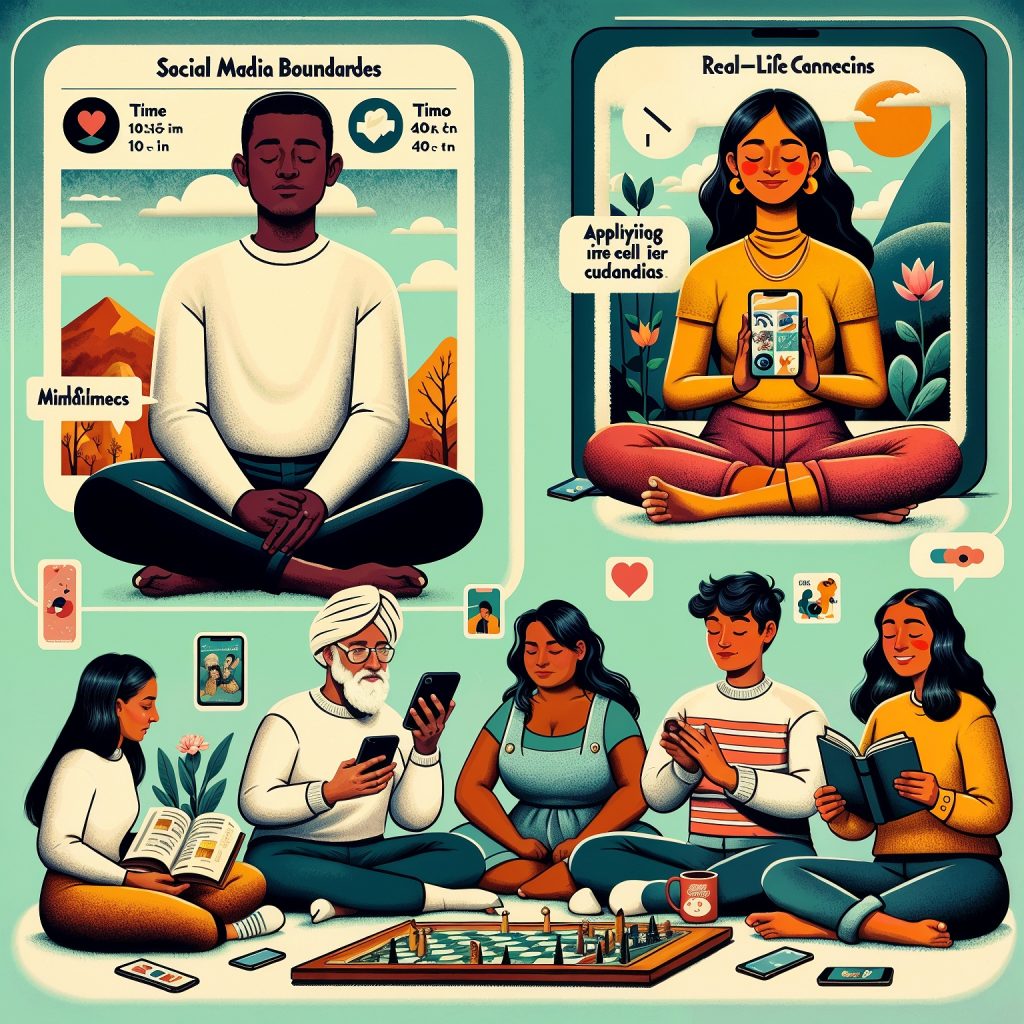Social media has become an integral part of your daily life. From keeping up with friends and family to staying informed about current events, platforms like Facebook, Instagram, and Twitter offer endless opportunities for communication and connection. However, this virtual interaction comes with a price: your mental health. Let’s delve into why social media can be a burden and how you can take steps to prevent it from negatively impacting your well-being.
The Burden of Social Media on Your Mental Health
1. Comparison Culture:
When you’re scrolling through your feed, it’s easy to fall into the trap of comparing yourself to others. You see posts of friends on exotic vacations, celebrating milestones, or flaunting their seemingly perfect lives. This constant comparison can lead to feelings of inadequacy, jealousy, and anxiety, making you question your own worth.
2. Fear of Missing Out (FOMO):
Social media amplifies the fear of missing out. Seeing others attend events, try new activities, or engage in social gatherings can make you feel left out or isolated. FOMO can exacerbate stress and anxiety, leading to a constant need to stay connected to avoid feeling excluded.
3. Cyberbullying and Negative Interactions:
Unfortunately, not all interactions on social media are positive. Cyberbullying, trolling, and negative comments can have a severe impact on your mental health. The anonymity of the internet often encourages people to say things they wouldn’t in face-to-face interactions, leading to hurtful and harmful exchanges.
4. Addictive Nature:
Social media platforms are designed to keep you engaged. The endless scroll, constant notifications, and the quest for likes and comments can become addictive. This addiction can disrupt your daily routine, affect your sleep, and lead to increased stress and anxiety.
How to Prevent Social Media from Burdening Your Mental Health
1. Set Boundaries:
Establish clear boundaries for your social media use. Designate specific times of the day when you check your accounts and stick to them. This prevents you from getting lost in the endless scroll and helps maintain a healthy balance between your online and offline life.
2. Curate Your Feed:
Take control of what you see by curating your feed. Unfollow or mute accounts that make you feel anxious, stressed, or inadequate. Follow people and pages that inspire, motivate, and bring positivity into your life.
3. Practice Mindfulness:
Be mindful of how social media affects your emotions. If you notice that certain interactions or content are causing negative feelings, take a step back. Engage in activities that promote mindfulness, such as meditation, yoga, or spending time in nature.
4. Engage in Real-Life Connections:
Prioritize face-to-face interactions over virtual ones. Spend quality time with friends and family, engage in hobbies, and participate in community activities. Real-life connections can provide the emotional support and validation that social media often fails to offer.
5. Take Digital Detoxes:
Regularly disconnect from social media to recharge and reset. A digital detox, whether it’s for a few hours, a day, or even a week, can help you gain perspective and alleviate the stress and anxiety associated with constant online engagement.
6. Seek Professional Help:
If social media is significantly impacting your mental health, don’t hesitate to seek professional help. Therapists and counselors can provide strategies and tools to manage your social media use and address any underlying mental health issues.
The Bottom Line
While social media offers numerous benefits, it’s crucial to recognize its potential downsides. By setting boundaries, curating your feed, practicing mindfulness, engaging in real-life connections, taking digital detoxes, and seeking professional help when needed, you can prevent social media from becoming a burden on your mental health. Remember, you have the power to control your online experience and prioritize your well-being above all else.

